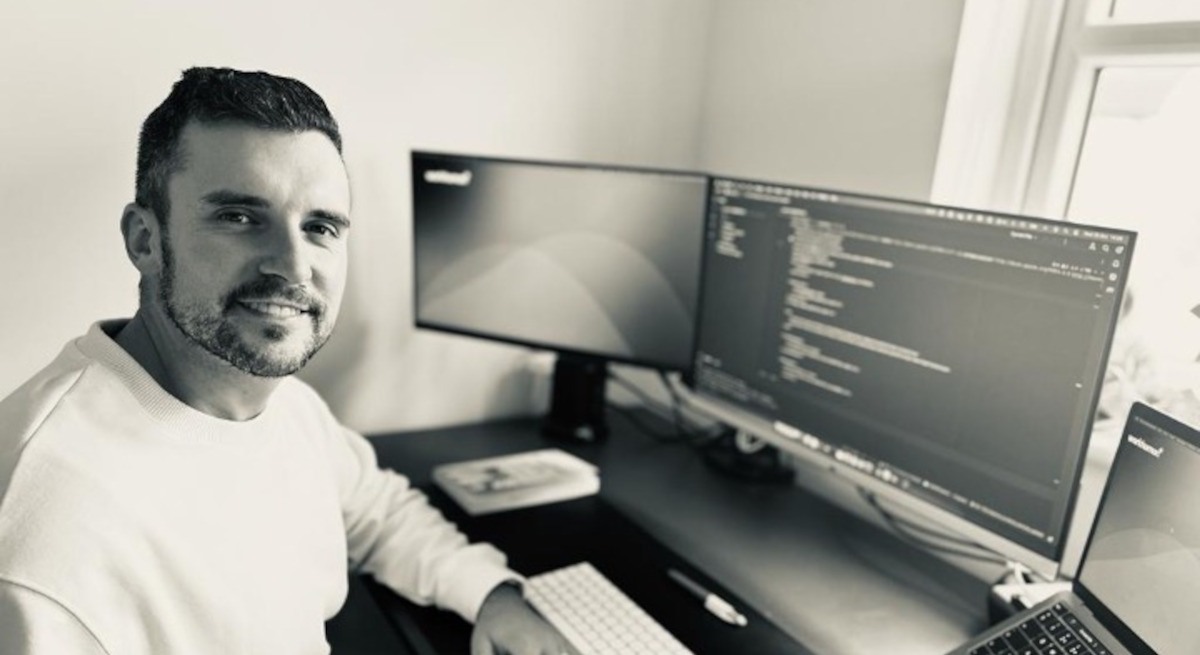
Workhuman’s Keith Tuffy discusses his role as a principal engineer and why organisation and communication are the most important skills in his day-to-day role.
Keith Tuffy considers himself a problem-solver. As a principal engineer in the recognition and celebrations team at Workhuman, Tuffy says that solving problems is the one of the most enjoyable parts of his job.
“The most rewarding thing for me is to be presented with a problem and logically being able to work with the team to design and implement a solution for that problem.”
Tuffy joined Workhuman as a software engineer in 2020 and worked his way up to the position of senior software engineer, before recently being promoted to his current role.
Another part of his role that he enjoys, and one that he is “highly passionate about”, is the opportunity to help and mentor his colleagues whenever possible.
“During the first few years of my career, I had an exceptional mentor who showed me the ropes and gave me great confidence in myself,” he explains.
“In turn, I strive to give this back to others where I can.”
If there is such a thing, can you describe a typical day in the job?
When I get to my desk each morning, I like to plan my day out, giving myself a goal(s) of what I want to achieve in that day. Being a principal engineer in a company that is fast moving, it is important for me to plan my day and preempt, where possible, switching contexts throughout the day. This helps me be prepared for upcoming calls by allowing me to digest meeting agendas, architecture diagrams, decision logs etc before calls.
A big part of my day to day as a principal engineer is joining meetings to lend my technical and domain expertise in various projects that the five squads in the team are working on.
‘The most difficult part of being a principal engineer is the context switching’
What types of projects do you work on?
Over the last four years, I have worked on a range of different projects here in Workhuman. One of the biggest and ongoing projects we have is to modernise the Workhuman tech stack. The overall goal here is to help break apart older monolith applications into smaller bite-sized chunks, so developers can easily develop new features and release them independently.
For me, it has been a fantastic opportunity to learn the Workhuman domain and get hands-on professional experience working with new tech.
What skills do you use on a daily basis?
If I asked my parents to describe what I do for a living, they would say that “he works with computers”. They are somewhat right. While I have learned my trade writing code and working out logical problems, the skill I use the most throughout the day is communication.
Communication enables us to learn from each other, build relationships and solve problems and is a vital skill to being a successful software engineer. Something I like to do to help communicate technical problems to a technical and non-technical audience is to draw out simple diagrams of the problem we are trying to solve. This helps facilitate a discussion so that the team collectively can come to a clear understanding of a problem.
What is the hardest part of your working day?
The most difficult part of being a principal engineer is the context switching. Knowing the key areas to give your time to, so that your time provides the best return. Thankfully, I can work with my director and principal engineering peers to help with this.
Do you have any productivity tips that help you through the working day?
An intern that I recently mentored asked this exact question and my answer here will be the same. In the words of Roy Keane, “fail to prepare, prepare to fail”. As I mentioned above in the question about my typical day, I like to plan my day out in the morning before I dig into any work.
On a Monday, I look at my calendar for the week and block out some focus time. Of course, it is not always possible to get it exactly right, last-minute calls can always pop up, but making this a habit makes me feel more prepared, organised and calm, and in turn, lets me be more productive.
When you first started this job, what were you most surprised to learn was important in the role?
Before I joined Workhuman, I was a software consultant, where I worked with multiple external clients and projects. The change to in-house product development was surprising for me as I had to learn a real sense of ownership of a product, rather than being a consultant helping companies build their product.
How has this role changed as this sector has grown and evolved?
Workhuman has grown considerably since I joined nearly four years ago. When I joined as a software developer, the recognition team was just one team with 15 team members. Since then, it has branched out into five squads with more than 50 team members spread out between them. This evolution has allowed for career opportunities and opened space for career growth.
10 things you need to know direct to your inbox every weekday. Sign up for the Daily Brief, Silicon Republic’s digest of essential sci-tech news.

